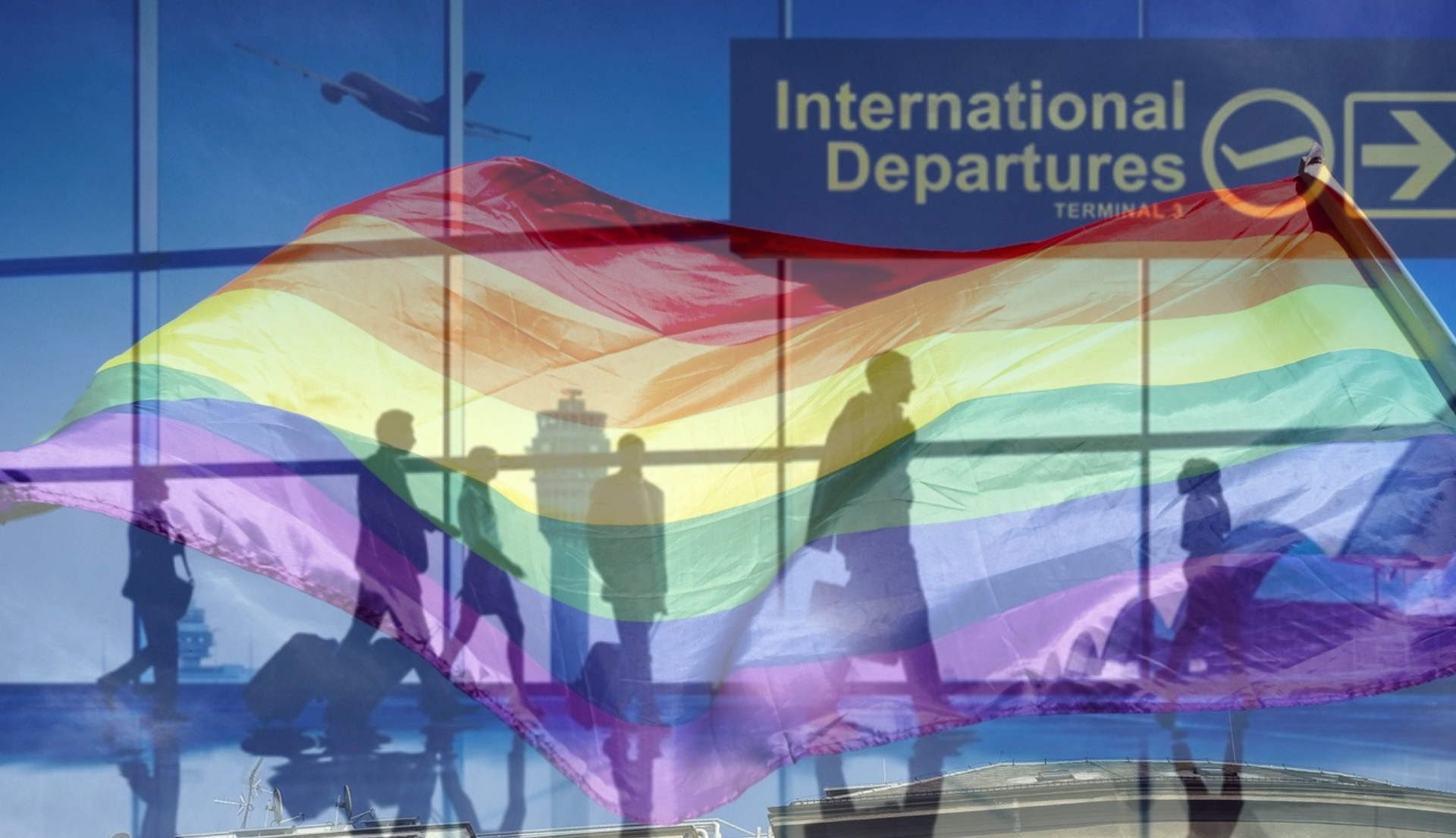June is national pride month which celebrates the LGBTQ community and marks the anniversary of the 1969 Stonewall Uprising in Manhattan. Although LGBTQ rights have made significant progress, not everywhere in the world offers a welcoming and safe environment for the community. Some regions still hold widespread prejudice and there are 62 countries (mostly in the Middle East, Africa and Asia) where homosexual activity is illegal, according to Equaldex, a collaborative LGBTQ knowledge base. This number has decreased from 69 in 2022. The LGBTQ community face a unique set of issues depending on where they are travelling.
It is important for organisations to realise this and be proactive to ensure the safety and wellbeing of their travellers and remote workers. This can be challenging for an organisation especially as it is likely that many LGBTQ employees will not have communicated their sexuality. A 2019 survey from SAP Concur conducted with Wakefield Research found a disconcerting 95% of LGBTQ business travellers have hidden their sexual identity whilst travelling, naming their safety as the top reason and 46% because they were worried about anti-LGBTQ laws in the country they were visiting.
However, a recent Business Travel Show survey, showed that more corporate travel programs are catering for the LGBTQ community with 43% of programs now making provisions for this group of travellers this year, up from 26% in 2022, a further 23% plan to do so by the end of the year.
10 Considerations
If you are part of the LGBTQ community or responsible for the safety of international travellers and the global workforce for your organisation, then we have identified 10 considerations:
- Review your travel safety and security policy – if your travellers or remote workers don’t want to disclose their sexuality it is important that all employees have access to clear information, which is non-discriminative and uses gender-neutral language. Communicate your travel risk procedures with all staff so LGBTQ employees don’t feel singled out and outline the support they can expect
- Thoroughly research destinations and prepare before you go. Our country risk assessments are a good place to start but you can also conduct your own research by looking at online forums and networks. We have listed a few useful resources/websites at the end of this article
- Complete a risk assessment. These should be LGBTQ inclusive, assessing the factors and challenges that may impact LGBTQ travellers and mobile workforce. When working or travelling to higher risk destinations information and recommendations should be provided on how to mitigate those risks
- Pre-travel training – ensures your travellers and global workforce are informed about the risks they could face and increases awareness of the behaviours and conduct that can help keep them safe. It gives them the confidence to face unfamiliar situations and locations. Our eLearning travel awareness course has a topic aimed at LGBTQ travellers, focusing on the unique issues and considerations that could affect them when travelling
- Create official processes for reporting incidents – wherever your employees are in the world they need to know the procedures for reporting incidents i.e., unwelcome attention or comments about their sexuality or gender identity and how to access support. The UK Foreign office state it’s normally best to ignore them and move to a safe place. Our Travel Risk Management App (Sphere) has an assistance button if your employee feels they are in an unsafe situation
- Flexible accommodation – there is LGBTQ friendly accommodation which is more welcoming and inclusive for the community, research alternatives and make sure accommodation can be cancelled if needed. An astonishing 85% of LGBTQ business travellers have changed accommodation because they felt unsafe according to the SAP Concur survey. On our SPHERE app we offer safe accommodation recommendations
- Avoid potentially risky situations, encourage behaviours which respect and reflect where you are located and the culture. Exercise more discretion and avoid overt displays of affection which may attract unwanted attention or cause offence. Follow an appropriate dress code
- Documentation – when travelling it is important to have to hand all the documentation required to enter a country whether that maybe just passports and tickets or additional supporting documents for other reasons. For example, transgender travellers often face complications when going through airport security if a different gender is on their passport
- Providing support and assistance – Safeguarding your employees when travelling is your organisations main priority. Our Global Response Centre is open 24 hour 7 days a week offering one point of contact in case of an emergency if a security situation does occur, or someone requires medical treatment
- Continually review the effectiveness of current procedures, processes and practices. Encourage employees to share experiences and voice concerns this may be achieved through employee networks, nominating an inclusion lead or through line management. By understanding the challenges, your LGBTQ travellers face and consistently making improvements your organisation is adapting to the changing environment and providing better support and reassurance
If you would like more information about protecting your employees worldwide contact our team sales@securewest.com
Useful Links
UK Government Foreign Office – travel advice https://www.gov.uk/guidance/lesbian-gay-bisexual-and-transgender-foreign-travel-advice
International Lesbian, Gay, Bisexual, Trans and Intersex Association – provides information on gay rights around the world http://ilga.org/
International Gay and Lesbian Travel Association – travel advice for gay and lesbian people
Gay European Tourism Association – travel advice for LGB&T people travelling in Europe
